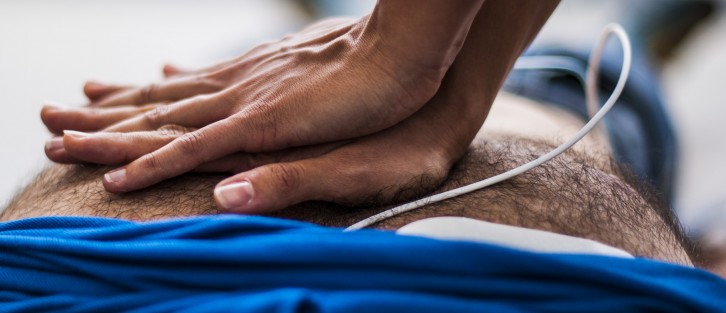If somebody you were with had a heart attack, a seizure, or an asthma attack would you know what to do? Would you in fact do anything more than call the emergency services? And what if that person had stopped breathing and the ambulance wait time could be up to 10 minutes? Would you attempt to do something?
A new study carried out by Manchester University found that more than half of all people who die in Greater Manchester before they get to hospital could be saved if someone stepped in with basic first aid.
The research was led by Prof Anthony Redmond of the Humanitarian and Conflict Response Institute. He found that when someone is seriously injured, 93 per cent of people will call for an ambulance. But up to 59 per cent will then fail to help them with basic first aid while waiting for the emergency services.
Professor Redmond carried out a similar study 22 years ago and while the new results show that more people are now calling 999, sadly the proportion of potentially preventable deaths from major trauma has remained high and unchanged.
So why is this? Why are we a nation so inept at learning first aid? Maybe it is anxiety about doing something wrong. In an emergency situation whether you are on your own or surrounded by other people, this fear can be crippling especially if you have never been on a first aid course. The quickest way to get over this fear is to realize that if nobody does anything, the person who has stopped breathing may die. It’s better to take some action, even if it’s not done perfectly, than not doing anything at all. And although we do not have a Good Samaritan Act in the UK nobody has ever been sued here for trying to save someone’s life. To watch one of Safe and Sound’s short CPR videos click on the links below. They are not however, a substitute for attending a first aid course.
Ultimately, if you never learn how to do CPR, then you may not be able to help someone’s life when they need it most. And it works both ways – what would happen if you stopped breathing and no one tried to perform CPR?
So no more procrastinations of “it won’t ever happen to me.” Situations that require CPR to keep someone alive — especially in these uncertain times – can happen at any time without warning. Knowing how to do this basic procedure can increase the likelihood that people around you will survive.
Adult CPR
https://www.youtube.com/watch?v=bOBNsMCgK04
Child CPR
https://www.youtube.com/watch?v=uHV6Jl5lyAM
Baby CPR
https://www.youtube.com/watch?v=FdaDn1LC53w
For more information about first aid courses go to:








